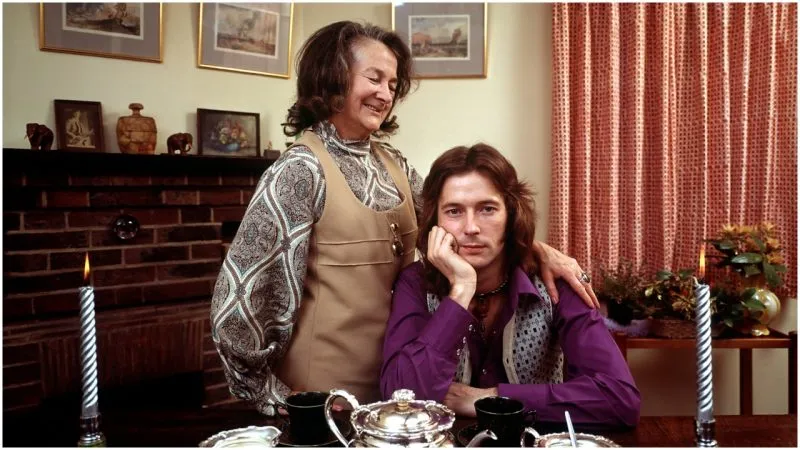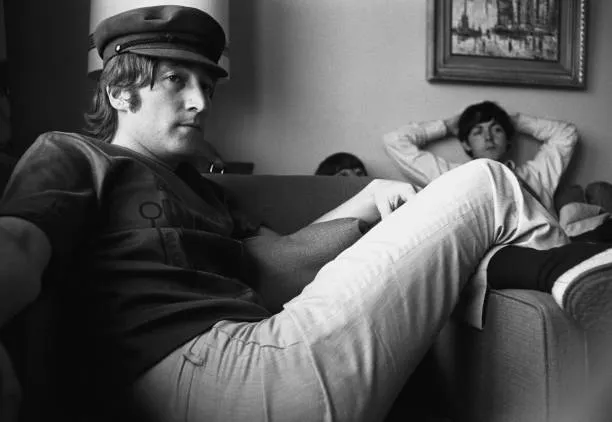The name Joe Cocker is synonymous with raw, soulful music that transcends genres and generations. But did you know that Joe Cocker was actually born John Robert Cocker?
Many fans might wonder why this legendary singer decided to adopt the name "Joe" instead of sticking with "John." The transformation from John to Joe was not merely a name change; it was a pivotal moment that helped shape his iconic career.
Here’s the true story behind why Joe Cocker decided to make that change and how it influenced his musical journey.
Early Days: The Birth of a Music Enthusiast

Joe Cocker was born on May 20, 1944, in Sheffield, England. Known as John to his family and friends, he grew up in a working-class environment that had nothing to do with the glitz and glamor of the music world.
His love for music was evident early on, inspired by the rock and roll wave and blues legends like Ray Charles and Chuck Berry.
John Cocker's first exposure to performing came through skiffle bands, which were popular in Britain during the late 1950s and early 1960s.
These groups often featured homemade instruments and covered American blues songs, laying the groundwork for many British rock musicians.
It was during this time that John, filled with dreams of musical success, picked up the microphone and began to sing.
The Genesis of "Joe"
The transformation from John to Joe wasn’t an overnight decision but a gradual evolution influenced by various factors. One of the key moments came when John Cocker joined his first semi-professional band, The Cavaliers, in 1960.
The band members felt that "John" wasn't distinctive enough for someone with his unique vocal talents.
Looking for a name that stood out, they began calling him "Joe," inspired partially by a childhood nickname and icon Joe Brown, a famous British singer and guitarist during that era.
Another influential factor was the popularity of blues and jazz musicians who often had straightforward, memorable names.
Names like "Muddy Waters" and "Howlin' Wolf" were easy to remember and carried a certain allure. By adopting "Joe," John Cocker hoped to make a similar impact.
The Transition to Joe Cocker: First Band and Solo Ventures
As Joe Cocker, his first significant venture was forming the band Vance Arnold and the Avengers.
In 1963, the group opened for The Rolling Stones at Sheffield City Hall. This was a crucial stepping stone, offering Cocker a taste of the high-profile music scene.
However, it wasn’t until 1964 that Joe had his first major breakthrough. He was signed to a record label and released a single titled "I'll Cry Instead," a cover of a Beatles song.
Though the single didn’t achieve much commercial success, it was crucial for Joe Cocker’s burgeoning career, encouraging him to continue pursuing music under his new name.
Becoming Joe Cocker: The Establishment of a Brand

By the late 1960s, Joe Cocker had partnered with The Grease Band, and it was with them that he produced his iconic Joe Cocker album With A Little Help From My Friends.
The title track, a transformative cover of The Beatles’ classic, became an anthem and catapulted him into the music stratosphere. It was also at this point that the name Joe Cocker became etched into public consciousness.
Having a name like Joe Cocker gave him a brand identity that stood out, especially in the crowded field of talented musicians emerging from Britain.
While his voice and talent were undeniable, having a memorable name was essential for a long-lasting career.
Personal Reflections: The Jervis Family Connection
As lifelong fans of Joe Cocker, the Jervis Family has always been fascinated with the small yet significant details of his life, including the name change from John to Joe.
My parents often share stories about how they first heard "With A Little Help From My Friends" and were instantly captivated.
They believe that the name "Joe Cocker" carried a certain rugged charm that perfectly matched his gritty voice and soulful performances.
Family gatherings often include conversations about the impact of names in the music industry, with Joe Cocker being a prime example.
We discuss how the name change helped him carve a distinct identity, making it easier for fans to remember and connect with his music.
These discussions always enhance our appreciation for the music and the man behind it.
The Cultural and Professional Impact

The decision to become "Joe Cocker" played a significant role in shaping his career, both culturally and professionally.
It allowed him to stand out in an era when having a memorable name was a crucial part of an artist’s identity.
This change was pivotal during the late 1960s and early 1970s, a time marked by rapid changes in music, fashion, and societal norms.
Cocker's performances at iconic events like Woodstock in 1969 further cemented his legendary status.
Known for his intense, passionate renditions, his name became synonymous with emotionally charged music that resonated deeply with audiences.
The combination of his name and his vocal intensity created an unforgettably powerful brand.
Moving Forward: The Name Remains
Over the years, Joe Cocker released multiple albums and hit singles, each contributing to his enduring legacy.
Albums like Joe Cocker! and Mad Dogs & Englishmen showcased his versatility and established him as one of the most distinctive voices of his generation.
The name Joe Cocker became a hallmark of quality and emotional depth.
Even as trends and tastes changed, Joe Cocker maintained his unique identity. His performances continued to draw crowds, and his records still received critical acclaim.
The choice to go by Joe, rather than John, was a decision that played a subtle but important role in his lasting success.
The Power of a Name
Changing his name from John to Joe was more than just a superficial shift for Cocker. It was a strategic move that helped define his public persona, making it easier for fans to connect with his voice and his performances.
The name Joe Cocker has gone down in history as one of the unforgettable voices of rock and blues, a testament to the power of identity in the music industry.
For the Jervis Family, and countless fans around the world, Joe Cocker’s music continues to be a source of inspiration and joy.
The name change might seem like a small detail, but it played a substantial role in crafting the legend that is Joe Cocker—both the man and the musician.
The journey from John to Joe is a reminder of how seemingly minor decisions can have a lasting impact, forging the path to stardom and leaving an indelible mark on the world.



